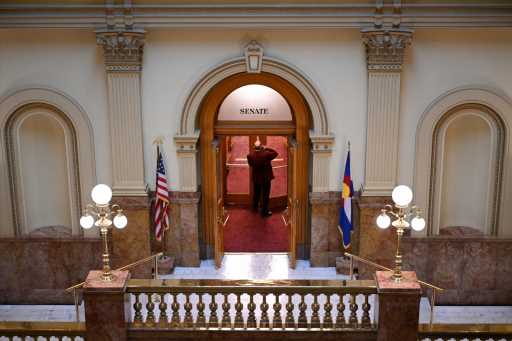A bill that would have given gig drivers more information about the rides they accept died in a state Senate committee late Tuesday night — a significant blow to labor groups and legions of workers who say they’re nearing a breaking point.
A pair of Senate Democrats — Kevin Priola of Henderson and Kyle Mullica of Thornton — voted with the Finance Committee’s three Republican legislators to kill SB23-98 by a 5-2 margin.
“Drivers deserve accurate information, and we all worked hard on this bill to find a path forward without compromising the foundational needs of gig drivers and customers but were sadly unsuccessful,” Rep. Stephanie Vigil, a bill sponsor and the first gig driver elected to the Colorado legislature, said in a statement.
The bill was on life support over the weekend after committee members expressed skepticism about portions of the legislation, including a state-run review board that would have overseen driver terminations.
The tech giants — including Uber, Lyft and Doordash — lobbied heavily against the proposal, arguing that the new rules would have been onerous and without precedent. The app companies also ran ads asking their customers to contact lawmakers to oppose the bill. Other outside groups, including the head of the local NAACP and a sexual abuse advocacy organization, spoke out against the legislation.
“Outside of the bitterness we feel, we have hope,” Colorado Independent Drivers United, a union representing ride-share, delivery and taxi drivers, tweeted Tuesday night. “We have a world to win!”
The legislation came amid a broader Drivers’ Rights Movement around the country fighting for gig workers to have more say over their time, data and work.
It would have mandated that ride-hail and delivery companies show their work, telling drivers and riders how much of their fare would go towards the individual behind the wheel and how much would go to the business. The bill would have also required gig companies to give drivers more information related to wages, time worked and expenses.
These new technologies represent “both a great opportunity and a great risk,” Vigil said.
“Done poorly, we risk a twisted outcome in which jobs not replaced by AI move onto digital platforms, where a ghost boss calls the shots, and the ability to establish connections with peer colleagues is lost,” the Colorado Springs Democrat said in the statement. “We are not finished with this work. This is not the end. Change for gig workers is coming to Colorado.”
Stay up-to-date with Colorado Politics by signing up for our weekly newsletter, The Spot.
Source: Read Full Article
-
In Chaotic Rhode Island Primary, 11 Democrats Vie for a House Seat
-
DOE Announces $42 Million To Strengthen US Power Grid
-
Holocaust memorial built next to Parliament to be pushed through
-
Poll result: Should Boris Johnson have resignation honours list? – YOU VOTED
-
Britain and Turkey to smash smuggler gangs transporting migrants

